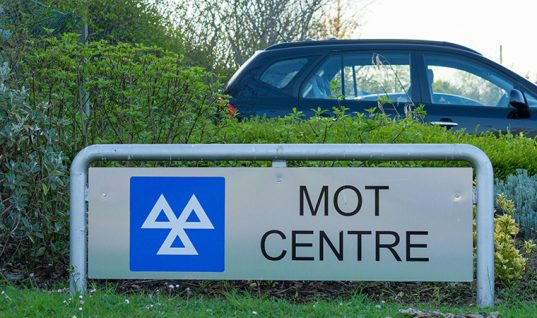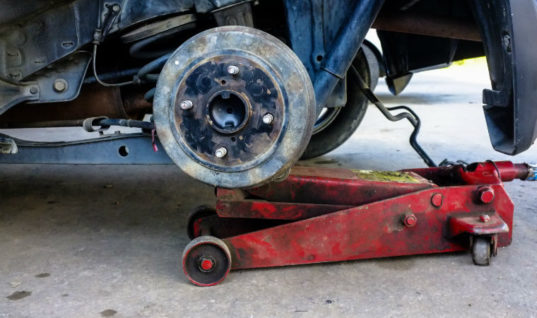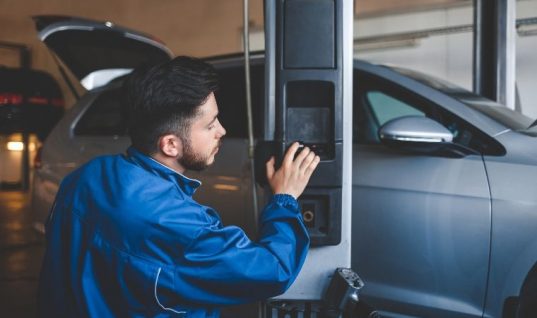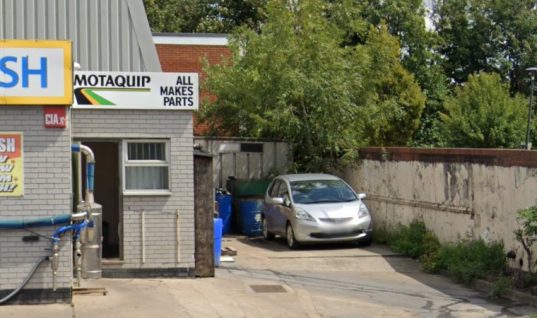Independent garages form a vital part of the UK’s automotive landscape, serving as a cornerstone for vehicle maintenance, particularly for the nation’s extensive and often ageing vehicle parc.
But sadly, independents are currently facing a “perfect storm” of economic pressures, rapid technological changes and shifting consumer expectations. These factors massively complicate the ability to provide accurate, competitive, and transparent quotes, which is fundamental to their operational viability and even the cultivation of customer trust.
In a recent survey carried out by The Motor Ombudsman, indicates that nearly nine in ten (89%) garages anticipate rising operational costs in 2025, while over half (56%) expect motorists to delay essential repairs due to tighter household budgets.
This creates a challenging environment: increasing internal costs coupled with a projected decrease in revenue. As Bill Fennell of The Motor Ombudsman noted, this is an “interesting juxtaposition of rising costs to operate on the one hand, and less revenue due to consumers delaying repairs and maintenance on the other”.
This challenging environment means that quoting is no longer a simple calculation but a complex strategic imperative, requiring garages to balance affordability for customers with their own financial sustainability. This pressure erodes the traditional competitive advantage of independent garages, which historically offered quality service at lower rates, making it difficult to maintain profit margins without compromising their appeal.
Volatile costs and supply chain pressures
Independents are grappling with a significant and unpredictable increase in their operational cost base, making it challenging to predict and incorporate these fluctuations into fixed quotes. The recruitment of qualified and experienced vehicle technicians remains a persistent staff challenge, with almost half (48%) of businesses reporting difficulties.
To attract and retain staff, a majority (55%) of repairers increased wages in 2024, and changes in National Minimum Wage and PAYE are projected to significantly impact some businesses financially. Skilled mechanics and specialised repairs inherently drive up service charges
Concurrently, parts shortages frequently result in delays, and garages face intense competition from parts sold online at lower costs, a challenge cited by 46% of businesses. Supply chain disruptions have inflated spare part prices, and sourcing replacement parts for older vehicles is becoming increasingly difficult.
Beyond labour and parts, general operational costs such as taxes and utility bills are identified as the biggest challenge for 89% of garages in 2025, with rising advertising costs also noted. This volatility means a quote given today might not reflect the actual cost by the time work is performed, forcing garages to either absorb losses, leading to reduced business profitability, or constantly adjust quotes, which can erode customer trust. The transparency of online pricing, while beneficial for consumers, places significant downward pressure on garage parts margins, complicating comprehensive and profitable quoting.
Technological complexity and unforeseen complications
The rapid evolution of vehicle technology, particularly the rise of Electric Vehicles (EVs) and Advanced Driver-Assistance Systems (ADAS), introduces significant unknowns into the diagnostic and repair process, rendering initial quotes highly susceptible to change. Modern cars necessitate specialised tools, making diagnostics and repairs more expensive. These vehicles are packed with complex electronics, sensors, and high-voltage systems that require manufacturer-specific diagnostic tools, with some modern vehicles containing up to 150 electronic control units
While EVs generally require less routine maintenance than traditional petrol and diesel models, potentially reducing revenue opportunities for some garages, their repairs demand specialist equipment and parts, along with specially trained technicians.Battery replacements, for instance, can exceed £10,000. ADAS recalibration issues and sensor failures are common, with replacement costs ranging from £300-£1,200 per sensor. Repairing complex car electronics can cost anywhere from £200 to over £4,000.
Crucially, unforeseen complications can arise during repairs; an initial visual inspection might miss deeper issues, necessitating more advanced and costly diagnostic techniques. Neglecting a minor issue can escalate damage, inflating costs beyond initial quotes. This means initial assessments often lead to “estimates” rather than “fixed prices,” requiring subsequent authorisation for additional work, which can frustrate customers and erode trust.
This diagnostic dilemma makes it challenging to provide upfront, fixed quotes, creating uncertainty for both the customer and the garage.
Competitive pressures and consumer expectations
Independents have always operated in a highly competitive market, where you have to balance your pricing against main dealerships and online alternatives, all while meeting increasingly demanding consumer expectations for affordability and transparency.
Main dealerships, despite their notoriously expensive overheads, are diversifying their service offerings to include post-warranty maintenance, leveraging manufacturer connections and specialised equipment. Independent garages, while often providing quality service at lower rates, are starting to face direct competition. Furthermore, competition from parts sold online at a lower cost is a significant challenge that’s only growing year on year.
Consumers, facing their own tighter budgets, are delaying essential repairs and not doing routine maintenance to save money, making customer retention even harder. This leads to a demand for transparent, often fixed, pricing, with consumers advised to compare prices and request multiple quotes.
Luke form Marchwood Engineers LTD recently said:
We passed an MOT last year with a few minor advisories, the customer took no advice from us regarding these and simply went out, purchased all the parts and got somebody to fit them. This person decided they did not require replacement, and the customer gifted us with negative feedback.
So now the customer does not trust us and is unlikely to return, who’s fault is this? Is it our fault for not explaining that the advisories do not require attention yet? Is it the customer’s fault for purchasing parts without seeking ours or the other garage’s advice? Or is it the other garage whose standards are too low?
Regulatory demands for transparency
UK consumer protection laws and industry codes of practice place stringent demands on garages regarding the clarity and accuracy of quotes and invoices, adding a significant layer of compliance complexity to the quoting process.
Under the Consumer Rights Act 2015, services must be carried out with reasonable care and skill and at a reasonable price unless fixed, and any information provided by the trader is legally binding.
The Motor Industry Code of Practice for Service and Repair, overseen by The Motor Ombudsman, further mandates that accredited businesses provide all-inclusive prices
Estimates must be provided in writing as a general guide, inclusive of all parts, labour, and VAT, and clearly state they are estimates. Similarly, quotations must be in writing as a breakdown of the firm agreed price, inclusive of all parts, labour, and VAT, and clearly state they are quotations.
Crucially, no deposits or prepayments are allowed, and explicit authorisation is required for any additional work discovered mid-repair. Invoices must also be itemised.
These regulations, while protecting consumers, impose significant administrative burden and legal risk on independents, particularly when unforeseen complications arise, requiring meticulous documentation and re-engagement with the customer. This compliance burden on dynamic quoting adds substantial administrative time and can end up causing delays in completing repairs.
Adapting to the quoting challenge
The ability of UK independents to provide accurate and competitive quotes is under unprecedented strain, stemming from a complex mix of volatile operational costs, the diagnostic challenges posed by advanced vehicle tech, intense market competition, and stringent regulatory demands for transparency. To thrive amidst these challenges, garages will have to start to move beyond traditional quoting methods.
This necessitates continuous investment in advanced diagnostic tools and technician training, which helps reduce diagnostic uncertainty and improve initial quote accuracy.
Developing more sophisticated pricing models that account for fluctuating costs and overheads, rather than just per-job expenses, is crucial; this might involve exploring service packages or repair budgeting plans to offer customers greater predictability.
Crucially, transparent communication with customers about potential complexities is key, the clear distinction between estimates and fixed quotes, and the necessity for authorisation for additional work is paramount. This helps manage expectations and build trust, even when initial quotes cannot be fixed.
The imperative for digital transformation in quoting is evident; adopting software that leverages real-time data for parts and labour can streamline processes, enhance transparency, and ensure competitiveness.
Despite the challenges, independents have consistently demonstrated resilience, with many planning investments and workforce expansions. The future hinges on the adaptability in transforming the quoting conundrum into an opportunity for increased professionalism and customer confidence.







